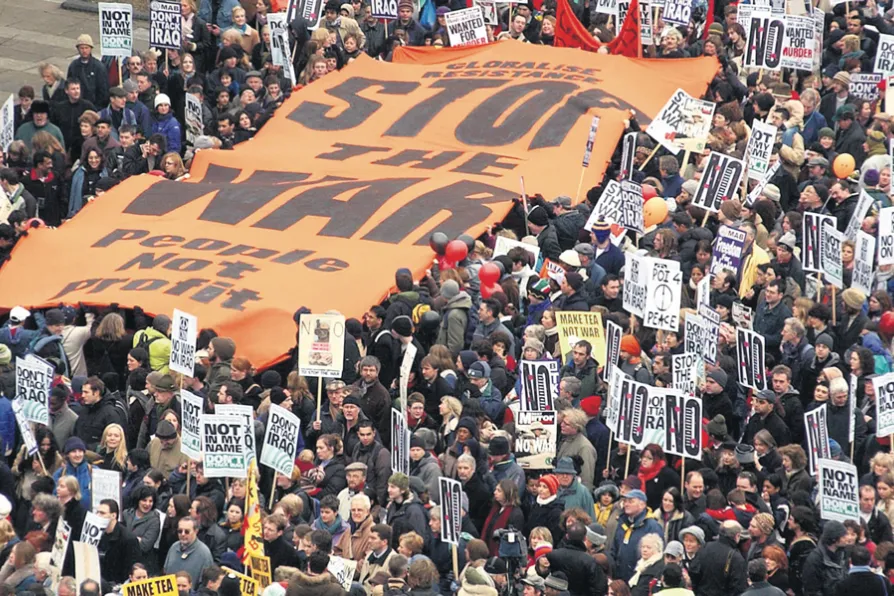The US-Israeli strikes against Iran are part of a decades-long war against the Islamic Republic which has refused to bow to US demands that it surrender its sovereignty, argues VIJAY PRASHAD

 Although the demonstrations failed to stop the invasion of Iraq, they played a significant role in the success of Jeremy Corbyn, pictured here at a Stop The War rally in 2007
Although the demonstrations failed to stop the invasion of Iraq, they played a significant role in the success of Jeremy Corbyn, pictured here at a Stop The War rally in 2007
A COMMON response to those protesting is to dismiss it is a waste of time — “the government doesn’t listen” or “things never change,” opine the naysayers. Frustratingly, this argument is sometimes even made by those doing the protesting themselves.
On the 10th anniversary of the huge February 15 2003 anti-Iraq War march, author Tariq Ali, who spoke at the rally in Hyde Park that day, said “It was a huge show of anger, but that’s about it. It left no lasting legacy.”
Leftists and activists working for progressive social change would be wise to steer clear of this kind of negativity and instead remember that actions and protests often have unexpected positive effects on other people and the wider world.
This rule very much applies to protests that seem like a failure at the time.
For example, in the early 1960s, Lisa Peattie, a young US widow, took two of her children to a vigil in front of the White House to protest against nuclear testing.
“The vigil was small, a hundred women at most”, Paul Loeb, a friend of Peattie’s, writes in his bestselling 1999 book The Soul of a Citizen: Living with Conviction in Challenging Times. “Rain poured down. Lisa’s children were restless. Frustrated and soaked, the women joked about how President Kennedy was no doubt sitting inside drinking hot chocolate, warm, comfortable and not even looking at their signs.”
A few years later, Peattie attended another march in Washington DC about nuclear testing, this one significantly larger. One of the speakers that day was the famous paediatrician Benjamin Spock. “Spock described how he’d come to take a stand on the nuclear issue,” Loeb notes. “Because of his stature, his decision was immensely consequential and would pave the way for his equally important opposition to the Vietnam War.”

While Hardie, MacDonald and Wilson faced down war pressure from their own Establishment, today’s leadership appears to have forgotten that opposing imperial adventures has historically defined Labour’s moral authority, writes KEITH FLETT

As the cover-ups collapse, IAN SINCLAIR looks at the shocking testimony from British forces who would ‘go in and shoot everyone sleeping there’ during night raids — illegal, systematic murder spawned by an illegal invasion












